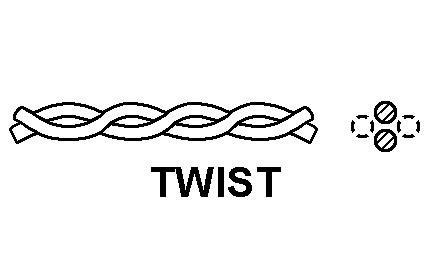6145014799189
Price Quote Get an up to date pricing and availability quote for this product. Order online or over the phone.
Quality Commitment
Serving our customers with quality and safety first.
- AS9120 Certified
- Audited supply chain
- ITAR Registered
- DDTC Registered
- HAZMAT Certified
- Customer service objectives
- Every product 100% inspected

6145-01-479-9189 Specification Set by the OEM (see RNCC code 3)
twist
150.0 deg celsius
3
19 all conductors
stranded all conductors
22 awg all conductors
32 all conductors
basic wire spec. MIL-W-22759/45; not for naval air systems command usage; TIN-Coated copper, round; white crosslinked, extruded, modified, ETHYLENE-Tetrafluoroethylene copolymer (xletfe)
copper core conductor all conductors
Cross Reference Parts Part numbers that meet the specification outlined on this page and set by the OEM
Identification Item Identification Guide (IIG) and Item Name Code (INC)

Definition Definition of approved item name (AIN): "CABLE,SPECIAL PURPOSE,ELECTRICAL"
Two or more individually insulated conductors (solid or stranded) contained in a common covering, or two or more individually insulated conductors twisted or molded together without a common covering, or one insulated conductor with a metallic covering or shield; each having characteristics not completely conforming to cable, telephone; cable, power, electrical; cable, radio frequency or cord, electrical. Includes items having the combined characteristics of two or more of the aforementioned names. Refers to bulk quantities only; for items of definite length with processed ends or terminated in fittings, see cable assembly, special purpose, electrical.
6145-01-479-9189 Material Hazmat, Precious Metals, Criticality, Enviroment, and ESD
Indicates there is no data in the hmirs and the nsn is in a fsc not generally suspected of containing hazardous materials.
Item does not contain precious metal.
No known electrostatic discharge (esd) or electromagnetic interference (emi) sensitivity.
Represents items with no adp components
The item does not have a nuclear hardened feature or any other critical feature such as tolerance, fit restriction or application.
Identification Codes
HMIC: Hazardous Material Indicator Code. A one position code that identifies a hazardous item.
PMIC: Precious Metal Indicator Code. A one position code which identifies items that have precious metals as part of their content. precious metals are those metals generally considered to be uncommon, highly valuable, and relatively superior in certain properties such as resistance to corrosion and electrical conductivity.
ESD: Electrostatic Discharge. Indicates if an item is susceptible to electrostatic discharge or electromagnetic interference damage. electrostatic discharge damage occurs when an accumulation of static electricity generated by the relative motion or separation of materials is released to another item by direct contact. electromagnetic interference damage occurs when an item comes into proximity with an electrostatic or magnetic field.
ENAC: Enviromental Attribute Code. Identifies items with environmentally preferred characteristics.
CRITL: Criticality Indicator Code. Indicates an item is technically critical by tolerance, fit, application, nuclear hardness properties, or other characteristics.






